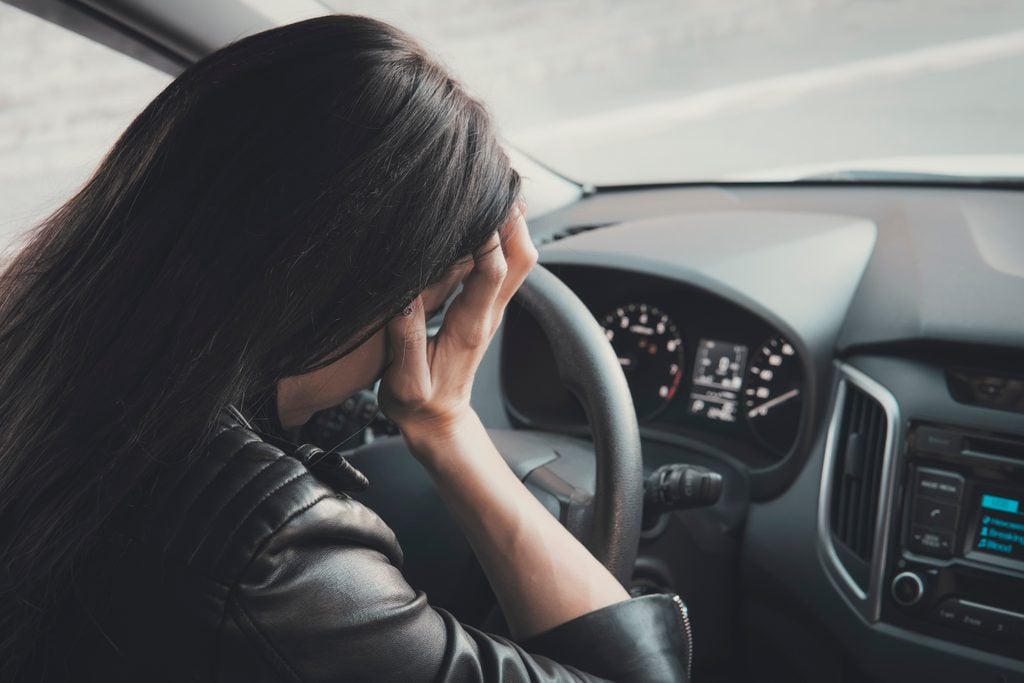Why Some People Get Motion Sickness—and Others Don’t
Updated: Dec. 12, 2019

If winding roads, bumpy planes, or rocking boats leave you queasy, we've got solutions. Here's the rundown on motion sickness—and ways to prevent it.
Whether you get carsick, seasick, or light-headed from playing interactive video games, motion sickness is seriously unpleasant. Kinetosis, the official term, can affect both kids and adults at varying levels—and some people are especially prone to it. So what exactly is the root of motion sickness?
According to Timothy Hain, MD, a neurologist at Chicago Dizziness and Hearing at Northwestern University in Chicago, motion sickness is caused by conflict between the senses responsible for registering motion. If the eyes, inner ear, and sensory nerves in the skin are all sending different signals to the brain, the crosstalk will leave you feeling dizzy or worse. “When there is conflict between one or more of these signals, for a sufficient time, this triggers motion sickness,” says Dr. Hain. (Don’t miss these 8 medical reasons you might feel dizzy.)
Why do some people get motion sickness and others don’t?
Much of what there is to know about motion sickness is fairly well-established, but why some people get it while others don’t remains a bit of a scientific mystery. All we know for sure is that some people are more sensitive to the dissonance between what the body is sensing and what is actually happening in terms of motion, according to Susan Besser, MD, a primary care physician at Mercy Medical Center in Baltimore. While there is not a clear inheritance pattern, motion sickness does tend to run in families.
Other research has found that the sensitivity may be acquired, or eliminated, as the case may be. For example, babies and children often grow out of car sickness. And Murray Grossan, MD, of the Grossan Sinus and Health Institute in Los Angeles, points out that ice skaters are less likely to experience car sickness. What all these theories have in common is dissonance, or the disconnect between what the body is used to and what it’s experiencing. You can try these tricks for beating motion sickness if you frequently find yourself having it.
Sit in the driver’s seat
According to the American Academy of Family Physicians, the reason some individuals feel dizzy or nauseous from reading while riding in a car or bus is because you’re experience an imbalance between what you see and feel. You’re focusing on something that is not moving (your book) while in an object that is moving, which can confuse your brain and make you feel sick.
Dr. Hain says that drivers have an advantage over passengers because they can anticipate what is coming next—they see the stop light; the cars in front of them. They know when they are pushing on the brake and when to brace for a turn. “Anticipation substitutes for sensory experience and prevents motion sickness. Drivers have a far more accurate ‘internal estimate’ than passengers; making them less dependent on external senses, and also less motion sick.”
Ride shotgun
If you tend to get car sick and you can’t be the driver, the second best place to be is the passenger seat, says Dr. Hain. Keep your gaze focused on the road ahead, and you’ll be able to anticipate the twists and turns, stops and starts. “This is not quite as good as the driver, but it still may help a lot,” Dr. Hain explains. “If you go over a bump, the car goes up and down the same as your vision. The two senses match, which prevents sensory conflict and motion sickness.”
Look at the horizon
Your best bet is to stop if you can, says Dr. Hain, but if that’s not possible, try looking out the window. Choose an object—like a tree—that is still and positioned in front of you so that your ears and eyes get similar information. “Do not put your head between your legs if you feel dizzy—that’s for low blood pressure.”
Take motion sickness medication
There are medications that reduce inner-ear sensitivity: meclizine—which is over the counter—and scopolamine patches, available via prescription. Or you may want to try one of these 6 natural remedies for motion sickness.
“Scopolamine (the patch) is generally effective, but it’s not suitable for chronic use,” warns Dr. Hain. “Generally, scopolamine is not used for kids under age 12 because kids are more likely to stick their hands on the patch and then rub their eyes, which gives them a dilated pupil. The main problem with scopolamine is that some people get addicted to it; whenever they try to stop, they get sick; which is why it’s designed for three days of use at a time.”
